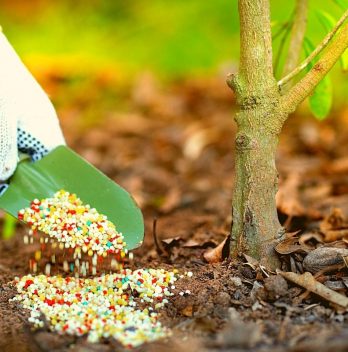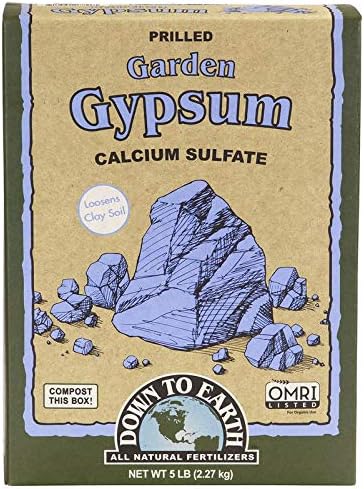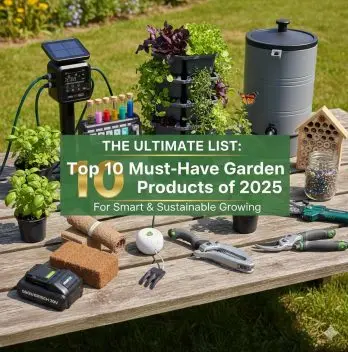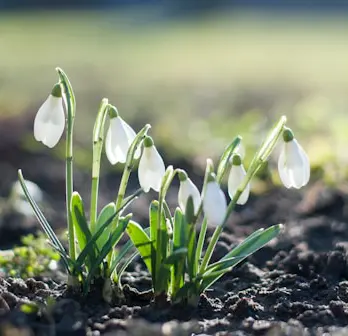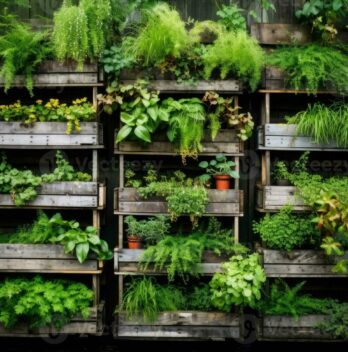Being a Gardner, there is a lot of work to be done when it comes to having a fruitful healthy garden. Fertilizing your plant is one good step to improving garden results, and there are various fertilizers you can use. So if you are wondering if gypsum will be a good fertilizer for your garden, we will let you know in this guide.
Certainly, Gypsum is a Good Fertilizer
Apart from other garden fertilizers, gypsum is a good fertilizing ingredient for the growth of your garden. Gypsum has been used as

Benefits of Applying Gypsum as a Fertilizer
Gypsum is applied to the
1. A great Source of Calcium
Calcium is vital as it helps with plant growth, especially for roots and shoots support. Deficiency of calcium in your plant can cause weak stem, stagnant or dead buds, weak roots, dropping of flowers, and abnormal patches of fruit colors. Gypsum contains 21 percent calcium essential for your plant structure. Calcium provided by gypsum prevents end rot in tomato plants, watermelons, peanuts, and apples.
2. More Efficient than Limestone
Gypsum is also preferably to limestone which some gardeners use as a calcium source. Limestone is not water-soluble like gypsum. Also, limestone might not get into the
3. Does not Affect
Gypsum does not have any effect on the pH of any soil. It is a natural mineral that neither adds nor removes minerals already existing in the
4. Excellent Source of Sulfur
Sulfur is a vital nutrient for protein synthesis in plants. Gypsum application ensures sulfur is provided to your
5. Amends
Heavy clay
6. Amends Damages from Salt and Pet Urine
Coastal or arid areas where salt meets the melted snow during winter can cause damages to your garden crops or lawns. The good thing is adding gypsum to your
Gypsum Application as a Fertilizer
Naturally occurring minerals are contained in gypsum which is vital for your crops to flourish. Be it vegetables, flowers, trees, shrubs, or turfs, gypsum application will work wonders on your garden or lawn. Gypsum is harmless, therefore, it’s safe for usage around humans, pets, and crops.
Gypsum comes in different forms such as granular, pelleted, and pulverized. The exact form of gypsum you may require will be based on the manner you decide to apply it to your garden or lawn.
Forms of Gypsum Fertilizer
Here are the various forms of gypsum:
- Pelleted Gypsum: Pelleted gypsum is fast-acting. They have low dust formula which is easy to work with any fertilizer spreader.
- Granular Gypsum: Granular gypsum is a slower release formula and low dust. Granular gypsum can be spread freely and easily and it works with any fertilizer spreader.
- Pulverized Gypsum: Pulverized gypsum is a perfect form of gypsum that will deliver extended-release. It performs better in broadcast or drop-style spreader device for powder.
Down to Earth Organic Garden Gypsum Calcium Sulfate
The quantity of gypsum you will require for your garden or lawn will solely depend on how you intend to use it: it will also depend on the status and conditions of your
For instance, if the compacted clay
Also, ensure you water deeply the gypsum into your
FAQ’s
Should I use gypsum as a fertilizer?
Gypsum is an excellent fertilizer for most plants. It’s very rich in phosphorous, which is needed by all plants.
The only drawback is that gypsum tends to be somewhat acidic and may make your soil too acid for certain plants. This can be mitigated with the use of lime, which should be applied in conjunction with gypsum. In fact, gypsum and lime are often used together as a soil-conditioning mixture.
Gypsum is pretty inert.
Gypsum has been used for weed control for over a century and it works by creating a barrier to stop seedlings from emerging. It also discourages the growth of roots. You’ll find it used in many gardening books on how to control weeds in vegetable gardens. Gypsum is a common ingredient in fertilizers and if you do some research you’ll find that it’s used in many commercial fertilizers. I’ve been using it for years to control weeds in my garden and it really works well.
The only thing you need to watch out for when using it is that it can make the soil too dry, but that shouldn’t be a problem since it’s mainly used as a mulch.
Gypsum should be added to pots after you’ve watered them. If your soil is too wet you might want to add some dry material like vermiculite or perlite. These will help to dry out the soil and allow for more air circulation.
Can you put gypsum around plants?
Gypsum is a mineral. You can’t put it around plants, because it’s too heavy for them to support.
It can be sprayed on plants, but it is not a good insecticide.
Can you mix gypsum and fertilizer together?
Yes, it can cause problems. Mixing fertilizer and gypsum is not a good idea. It’s better to buy one or the other. Fertilizer alone does not have enough nutrients for the plants and gypsum is very slow to break down and release the nutrients. I think that you should use gypsum on your lawn first. You can use fertilizer as a top dressing after it has been applied to the lawn.
What are the benefits?
The benefits of using gypsum to improve your garden are numerous. It is inexpensive, easy to use, and has many other uses. It improves soil structure Gypsum adds strength to soil by creating a strong surface layer. This prevents water from soaking into the soil too deeply. In addition, the water that does get into the soil is more evenly distributed, which helps prevent erosion. This makes it easier for plants to absorb nutrients and water, making them grow healthier. It eliminates salt build-up When you apply gypsum to your soil, it will absorb any excess salt that is present in the soil.
Conclusion
With the above information, it’s safe to conclude that gypsum is a good fertilizer for your vegetables, trees, shrubs, flowers, and turfs. Gypsum is a harmless fertilizer and it will supply your plants with some beneficial nutrients to make your plant grow healthy.

